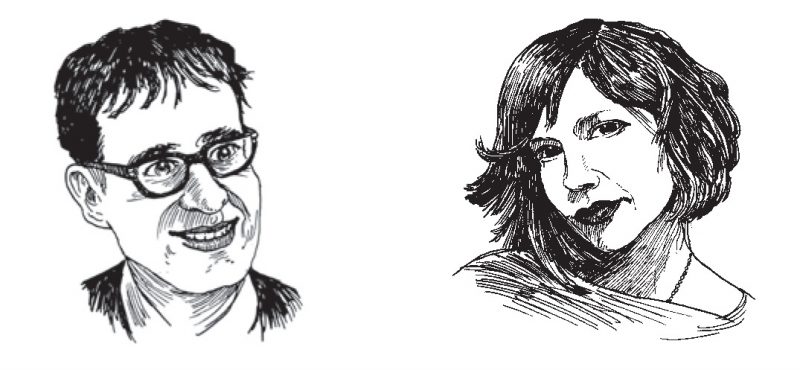This interview was sent to the Believer as an audio recording. Carrie Brownstein and Fred Armisen’s voices have the tinny, compressed tone that comes from being transmitted over a laptop. Brownstein and Armisen are comedic actors (and musicians) whose sketch-comedy show, Portlandia, recently began its fourth season on IFC. A radio play written by Brownstein and Armisen can be heard on the current episode of the Believer’s weekly radio-show podcast, the Organist, on KCRW.
CARRIE BROWNSTEIN: One thing that we discovered when we were traveling together for the Portlandia live shows was that we were both pigeon-toed as children. What are your memories of being pigeon-toed?
FRED ARMISEN: I was so little that I couldn’t understand what was happening. I did not know that there was a word for it. I didn’t know there was any kind of description for it, so all I know is that I was this toddler and all of a sudden I had to wear this metal brace that was pretty much a flat stick that went from my left foot to my right foot. And in the middle for some reason there was this sort of screw. It was just this black thing that made it impossible to walk, but there were shoes attached to it and they were white shoes and they were facing outward and I hated it.
CB: Is it one of those memories that you remember because your parents have told you?
FA: No, it’s something that I remember very clearly. In fact, I haven’t talked about it that much with my parents.
CB: I also was pigeon-toed as a child, and I also have a very strong memory of those orthopedic shoes, which, like you said, are white and very generic. They look like nurses’ shoes, but for babies. And then this metal bar, which seems almost archaic. My guess is that they no longer use this device for pigeon-toed-ness. In fact, I imagine that now they just encourage it, like they just say, “Oh, you’re so special!”
FA: I have not seen it anywhere else again. I’ve never seen it. I’ve never heard stories, aside from these. I don’t know anyone’s kids who’ve worn them. And they probably didn’t work. I can’t imagine that they change the bones in your legs the way that braces change your teeth.
CB: I also had, in addition to the orthopedic shoes, leg braces. It made it so that I learned to crawl and then subsequently walk later than normal. And I don’t quite remember that, but I completely agree with you. Unless there’s some center that people with pigeon-toed children are going to,...
You have reached your article limit
Sign up for a digital subscription and continue reading all new issues, plus our entire archives, for just $1.50/month.
Already a subscriber? Sign in






